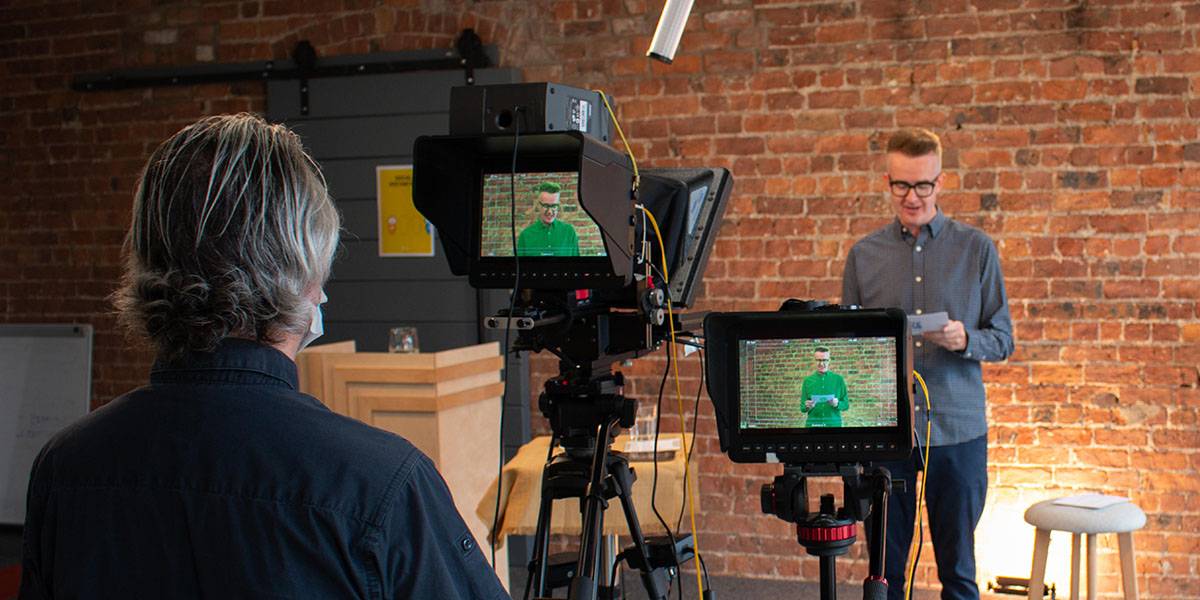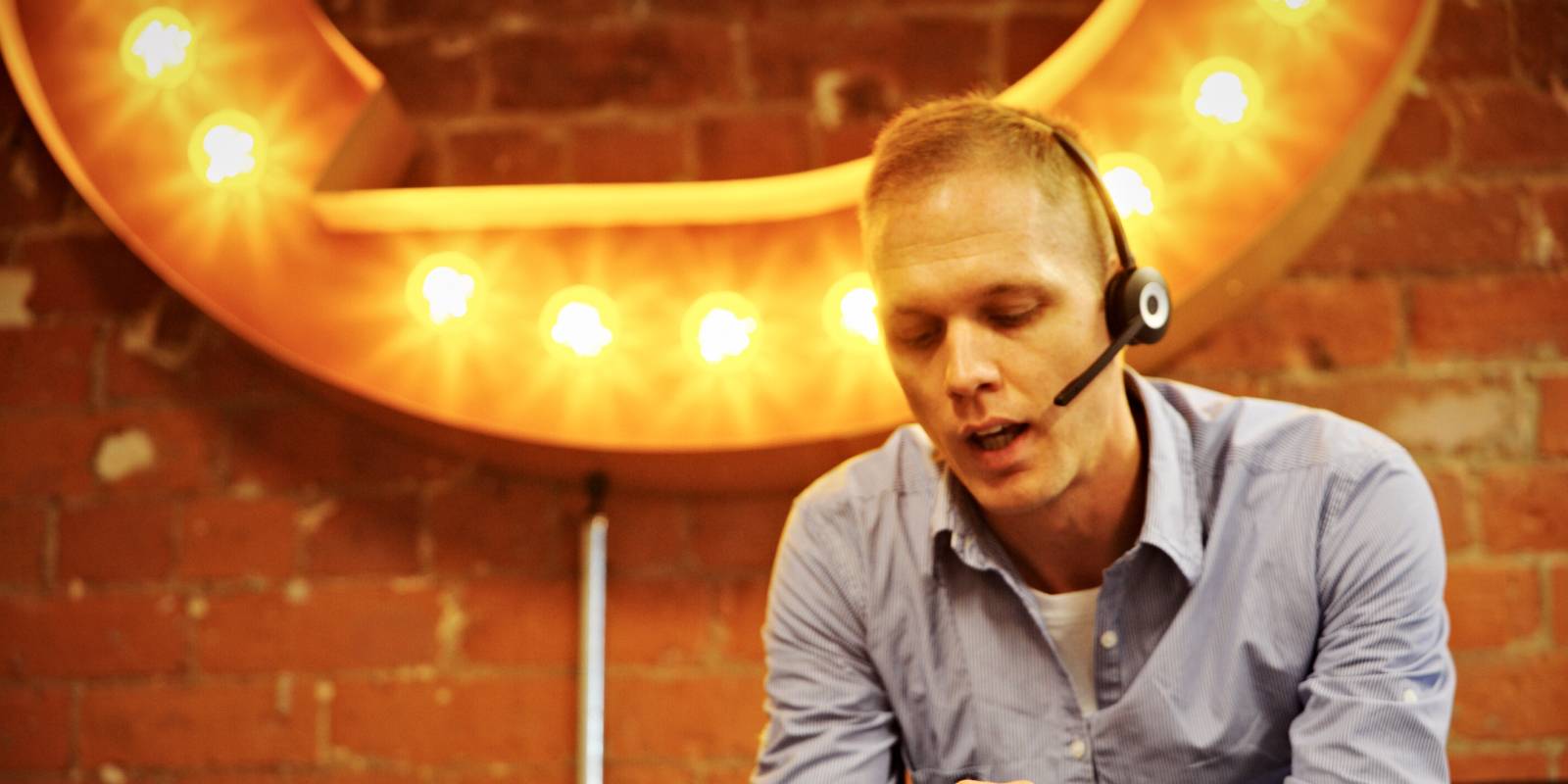
Learning Pool Live online: The summer edition
July 22, 2020
Life has been a little strange over the last four months since the UK was hit with the global pandemic, COVID-19. Restaurants and bars, gyms and leisure centres, non-essential shops, theatres and cinemas were forced to close and a majority of the UK’s workers embarked upon a ‘new normal’ of remote working. Festivals, gigs, conferences and other live events all over the world were all cancelled (some replaced with a virtual offering) or postponed and our long-standing Learning Pool Live events were no exception.
Throughout February and early March, we hosted several of our Learning Pool Live local events across different locations in the UK. However, following the news of the increasing impact of the Coronavirus outbreak, we took the decision to cancel our remaining two events, replacing them with one digital learning experience, facilitated by our Learning Experience Platform, Learning pool .
For first time organizers of a virtual event, the team here at Learning Pool were extremely pleased with the turn-out and relatively smooth running of the event. But, one of the key takeaways of the experience was that we needed to find a way to offer more of a networking opportunity to attendees since this is what people truly value from face-to-face events such as Learning Pool Live.
And with the decision made to postpone our main Learning Pool Live event in London until October 2021, ‘Learning Pool Live online: The summer edition’ was born. Hosted by David Meade from our Derry office, the afternoon was filled with live Q&A sessions, roundtable discussions and knowledge development to get you thinking about the ‘future of work’ and learning from a remote environment.
Video in Learning with Nice Media
In our first segment we were joined by video-centred learning specialists, Nice Media and its Managing Director, Georgia Rooney and Creative Director, Tom Hickmore. During this session, Georgia and Tom discuss using video to create learning experiences in these extraordinary circumstances, as well as some practical tips for planning video projects whilst maintaining social distancing during this time.
Georgia’s practical tips:
- Preparation is key – social distancing guidelines have put a magnifying glass on pre-production processes which means everything has to be rehearsed, people need to know what’s expected of them and you should expect certain tasks to take longer than usual. This also means having a back-up plan or back-up staff, should anyone go sick or develop Coronavirus-related symptoms.
- Keep crew to a minimum – it goes without saying that it’s easier to socially distance when there are fewer people involved. Only invite those who are absolutely necessary but be aware that a smaller crew probably means a longer day for those involved.
- Location is more important than ever – a larger space will ensure people can adhere to social distancing guidelines. Someone should be made responsible for ensuring the correct health and safety and hygiene measures are put in place to ensure a safe working environment for all involved.
The pair also talk us through the different kinds of video for learning, including ‘talking heads’, presenter-led video and scripted dramas with case studies from the likes of Brighton & Hove Council and how you can still achieve these through a Zoom recording.
Our people journey: COVID-19
We’ve spoken quite openly over the last four months about the precautions we’ve taken as a business to ensure the safety and wellbeing of our staff, customers and their families. This included 90% of our team adjusting to a ‘new normal’ of remote working, which included adapting the way they interact with colleagues, customers and suppliers. In this portion of the event, our Director of People & Performance, Louise McElvaney and Chief Operating Officer, Deborah Limb talk us through more of the recent changes we’ve encountered, from the way we and our customers work to the way we help and manage our teams remotely.
Louise and Deborah also discuss the impact the pandemic has had on varying aspects of the business, with recruitment being one, for example. Interviews are now conducted via video conferencing software but despite the circumstances, we’re pleased to have been able to onboard 10 new employees since lockdown began, with another four due to start in the coming weeks.
It’s also been vital to Learning Pool to ensure the physical and mental wellbeing of our staff through measures of a varying degree. More simply, managers have been encouraged to schedule “coffee morning breaks” or “after-work drinks” to help employees interact more freely with their colleagues. And most importantly, we’ve made it our mission to encourage our team to be more vocal about how they’re coping, offering a hand when needed which includes the offer of professional support from trained counsellors for issues ranging mental health concerns and financial struggles.
Agile and rapid: Developing content quicker
We’ve witnessed an unprecedented level of change in the last few months but we’re also faced with an uncertain future and this could have a massive impact on the learning needs of a business and the circumstances of its learners.
Under ‘normal’ circumstances, a typical elearning project can take up to 12 weeks from conception to delivery. We work with our customers to identify the business outcome they’re hoping to achieve, the audience they’re delivering it to and the landscape the learning will be deployed on. But a lot can change during those 12 weeks and often the project becomes something quite different throughout the ideation process.
This has been magnified greatly in the last four months and here, Duncan Thomson our Head of Delivery and Jack Quantrill our Head of Learning Experience consider how COVID-19 has altered the way learner’s consume content, how it’s impacted the content they need and when they need it, and even driven a need for more urgent elearning for certain organizations.
Future Skills & Future of Work
The L&D community talks a lot about the industrial revolution and the idea that we’re starting to move towards an intelligence age, where we start to look at the world in a different way and the way in which we interact with technology is changing.
In response to this, as well as increasing research into the skills we currently have, those we should maintain and the ones need to develop, Learning Pool put together the Future Skills library which outlines 12 key skills: adaptability, building relationships, communication, creativity, critical thinking, delivering with others, entrepreneurship, leadership, negotiation, people management, service orientation and talent development.
Throughout this presentation, Head of Learning Libraries, Ryan Cooper along with Senior Learning Designer, Rosie Scott discuss how the Future Skills Library captures the present trends as tomorrow’s skills become today’s and how these topics will evolve into learning experiences that can be looked at any time, anywhere, to suit the changing needs of the learner. Find out more about the Future Skills Catalogue here.
To educate organizations and its people on Coronavirus and to shed some light on what was accurate and what was misinformation, Learning Pool put together the Coronavirus Course Essentials pack. Not only did this cover symptoms to look out for and what to do if you feel unwell, but this also delved into the reality of remote working, including developing a skillset around technology that some workers might not be proficient on.
To follow this, the Future of Work Catalogue aimed to provide organizations with the right tools to help them become COVID-secure, following Government guidelines, whilst allowing them to build and maintain high-performing teams and deliver success in this new way of working.
Here, Ryan and Rosie get together again to discuss how the ongoing global pandemic has forced us to adjust to the way we work as the ‘new normal’ is defined. Find out more about the Future of Work catalogue here.
Back to work with Waves
Learning Pool’s Waves enables organizations to plan, launch, nudge and manage learning effectively using advanced techniques like spaced practice, to maximise retention and recall.
In this presentation, Product Managers, Andrew McMonagle and Ian Blackburn talk through how Waves can assist in optimizing learning campaigns when employees return to work. They demonstrate how to automate nudges and set reminders to reduce the time spent chasing learners to complete training and ultimately reduce time to compliance. Throughout the session, they discuss how you can trigger microlearning or micro assessments at a specified time and even enrolling learning onto courses automatically on the completion of pieces of content.
Using Learning Record Store they also show the effectiveness of these campaigns by tracking all of the activity data from all sources, giving you the opportunity to adjust your approach to achieve the highest success rates against your organization’s goals.
You can register to access the full event recording here.
Got a learning problem to solve?
Get in touch to discover how we can help

